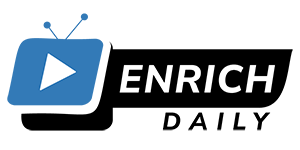In an age of global commerce, cross-border partnerships, and online presence, businesses increasingly seek identifiers that establish their legitimacy and make them easily verifiable. Enter ISBEN, the International Standard Business Establishment Number, a system that aims to assign a unique identifier to business establishments worldwide. According to its official site, ISBEN offers a standardized identity for firms of all scales, enhancing credibility, visibility, and trust in both local and global markets.
What Is ISBEN and What It Does
The ISBEN platform describes itself as International Standard Business Establishment Number a unique identifier for every business around the world, regardless of size—whether a small retailer, a manufacturing company, or a digital startup. By issuing a globally recognized number, ISBEN aims to:
- Distinguish one business from another,
- Prevent confusion or duplication of business identities,
- Provide a system of verification and recognition,
- Facilitate expansion across regional and international markets.
Through its services, ISBEN claims to support credibility, trust, and digital presence. It encourages businesses to adopt this number to enhance their visibility online, support marketing & sales opportunities, and make their identity verifiable.
On its website, ISBEN advertises benefits such as enhanced marketing and sales, expanded customer base, and streamlined operations. It also claims “quick process” registration and the possibility of free or paid listing options.
Known Facts and Limitations
Though ISBEN is now a live system (with the domain isben.org) and is actively offering business registration services, publicly available information lacks certain details, such as:
- The founder(s) behind ISBEN or the originating organization or individual responsible,
- A formal history of its establishment or institutional backing,
- Clear statements on governance, oversight bodies, or partnerships with governmental or regulatory agencies.
The “About Us” or corporate history sections on the ISBEN site do not yet reveal these founder-level details.
Because this information is missing, stakeholders should approach claims with awareness: adopting an identifier like ISBEN may confer benefits in branding and visibility, but its long-term trust, institutional backing, and acceptance by official bodies remain to be demonstrated.
How Businesses Can Get ISBEN
According to ISBEN’s own site, the registration process follows a few steps:
- Free Listing or Paid Listing: Businesses can choose a base-level registration or opt for premium services.
- Submit Business Details: Required info includes legal name, address, business type, and other standard identifiers.
- Verification & Issuance: ISBEN’s team reviews submissions, verifies authenticity, and issues a unique ISBEN number to the business.
Once issued, the business is said to gain a unique global identity that accompanies it across platforms, making it easier for clients, partners, or regulators to validate its legitimacy.
Potential Benefits and Challenges
Benefits
- Credibility & Trust: A unique identifier gives customers and partners confidence in engagement.
- Business Visibility: Helps businesses stand out in search results, directories, and listing platforms.
- Global Recognition: Facilitates cross-border dealings and easier recognition in new markets.
- Simplified Documentation: Could help in contracts, invoices, tenders, and government dealings by providing a standardized identifier.
Challenges & Cautions
- Adoption & Acceptance: The real power of such an identifier depends on its adoption by governments, financial institutions, regulatory bodies, and large platforms.
- Transparency & Governance: Without clear information about the founder or supervising authority, trust must be built over time.
- Data Security & Accuracy: Maintaining correct, up-to-date business records is essential discrepancies or lags in updates could mislead.
- Competing Standards: Other identifiers or registration systems might already exist locally (e.g., national business registry numbers, tax IDs) that may compete with or overlap ISBEN.
Final Thoughts
The International Standard Business Establishment Number (ISBEN) represents an ambitious effort to give every business a globally unique identity. At present, the system is live and accepting registrations, positioning itself as a tool for credibility, visibility, and market expansion. But without public information on its founder or strong institutional backing yet, ISBEN’s long-term acceptance and reliability will depend on partnerships, transparency, and adoption by the broader business and regulatory ecosystem.
